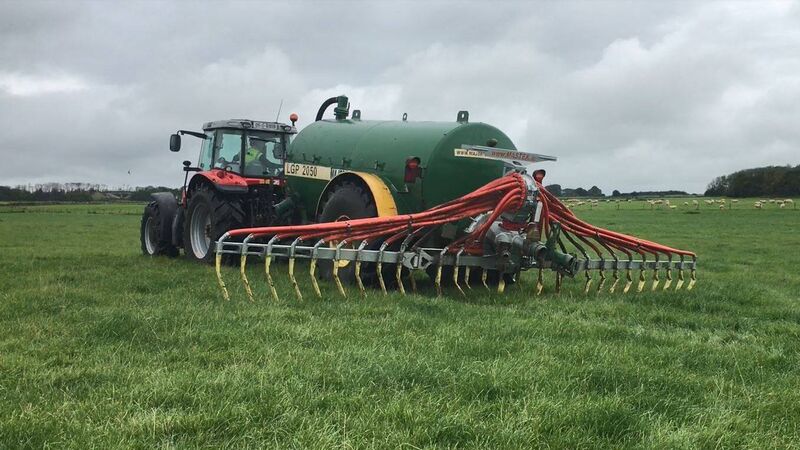Ireland facing €13m bill for not reaching GHGs targets

Low Emission Slurry Spreading (LESS) is helping to reduce emissions in Ireland but despite this, targets have not been reached. File Picture.
The EU’s Effort Sharing Decision law set national emission targets for 2020, expressed as percentage changes from 2005 levels.
It required Ireland to reduce emissions from sectors such as agriculture, transport, buildings, and waste 20% below their value in 2005, by 2020.










